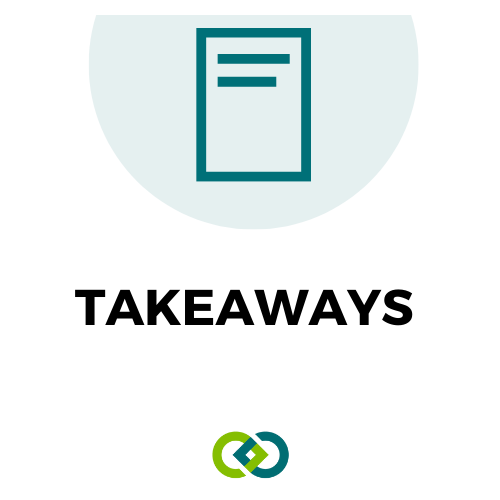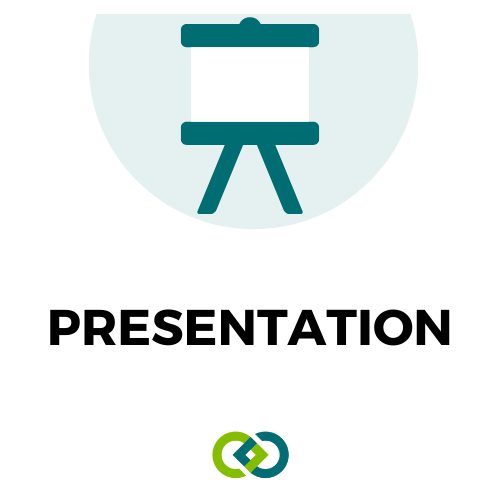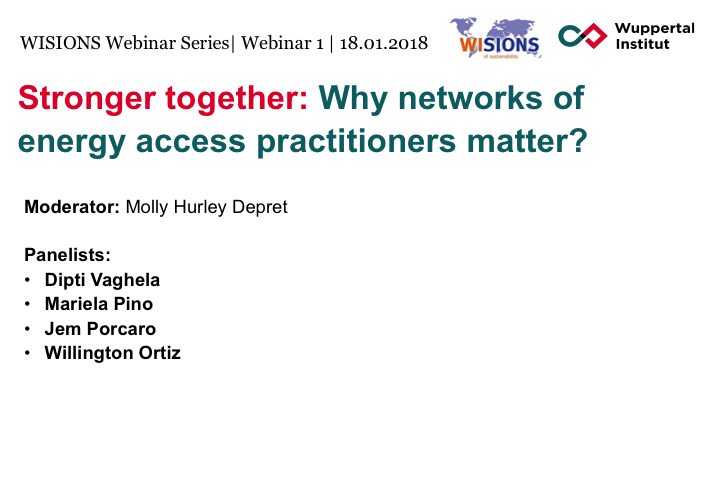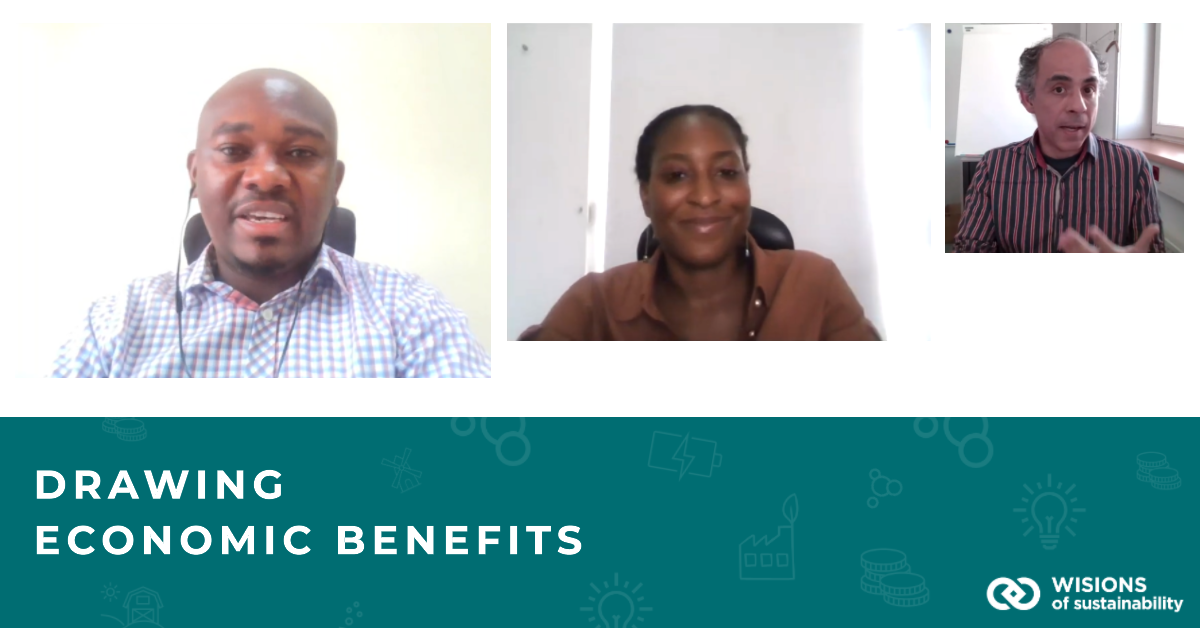Understanding Communities
Maximising the impacts of energy access by understanding the development opportunities, needs and aspirations of people and communities
Maximising the impacts of energy access by understanding the development opportunities, needs and aspirations of people and communities
This digital seminar is the second in the joint series hosted by WISIONS in cooperation with the ACCESS Coalition’s Learning Group. It focuses on how to maximise the development effects of energy access.
The ultimate goal of energy access interventions is to support people and communities to build prosperous and fulfilling lives. Local contextual factors determine what opportunities are feasible. Moreover, the meaning of ‘fulfilling lives’ varies for different people and communities according to cultural specifics such as values and aspirations.
Consequently, understanding and integrating the contextual and cultural aspects of people’s lives and capacities into the conception and realisation of energy projects is key for maximising the impacts of energy access.
Missed the previous seminar? It is the first of the series and Sets the Scene for the following editions.

During the discussion, our panelists established that conventional approaches to energy planning devote insufficient attention to community engagement. With their capacities and abilities, communities can support and lead successful energy initiatives. Engagement is possible on three different levels:
You can find the slides used in the seminar on the right hand side. Have a look at the next seminar of the series that focusses on the Productive Use of Energy
Further Materials:
This online article illustrates how the “Energy Delivery Model” has been applied to support the Kitui county government in Kenya to develop an integrated energy plan:
This video talks about how the “COMET” tool can help to engage communities in planning mini grids that meet their specific needs in their particular socio-economic and cultural contexts: This study applies transdisciplinary methodology to learn about the sustainability strategies of farmers’ associations in Colombia. The cases illustrate that a specific energy technology – such as domestic biodigestion – can be implemented in conjunction with other techniques and strategies to strengthen the livelihoods of farming families (cross-sector links):

You might also be interested in

18 January 2018
This webinar is the first part of WISIONS Webinar Series, which aims...

27 October 2022
The third edition asks how the livelihoods of people can effectively be improved by using energy productively...